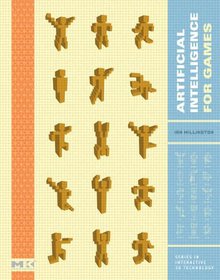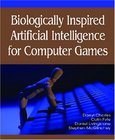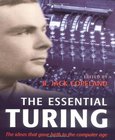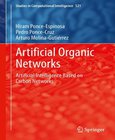Artificial Intelligence for Games

Book Details:
| Publisher: | CRC Press |
| Series: | Morgan Kaufmann |
| Author: | Ian Millington |
| Edition: | 1 |
| ISBN-10: | 0124977820 |
| ISBN-13: | 9780124977822 |
| Pages: | 896 |
| Published: | Jul 15 2005 |
| Posted: | Nov 19 2014 |
| Language: | English |
| Book format: | |
| Book size: | 5.26 MB |
Book Description:
Creating robust artificial intelligence is one of the greatest challenges for game developers. The commercial success of a game is often dependent upon the quality of the AI, yet the engineering of AI is often begun late in the development process and is frequently misunderstood. In this book, Ian Millington brings extensive professional experience to the problem of improving the quality of AI in games. A game developer since 1987, he was founder of Mindlathe Ltd., at the time the largest specialist AI company in gaming. Ian shows how to think about AI as an integral part of game play. He describes numerous examples from real games and explores the underlying ideas through detailed case studies. He goes further to introduce many techniques little used by developers today. The book's CD-ROM contains a library of C++ source code and demonstration programs, and provides access to a website with a complete commercial source code library of AI algorithms and techniques.
Download Link:
Related Books:
Biologically Inspired Artificial Intelligence for Computer Games
Computer games are often played by a human player against an artificial intelligence software entity. In order to truly respond in a human-like manner, the artificia intelligence in games must be adaptive, or respond as a human player would as he/she learns to play a game. Biologically Inspired Artificial Intelligence for Computer Games reviews several strands of modern artificial intelligence, including supervised and unsupervised artificial neural networks; evolutionary algorithms; artificial immune systems, swarms, and shows using case studies for each to display how they may be applied to computer games. This book spans the divide which currently exists between the academic research community working with advanced artificial intelligence techniqu...
The Essential Turing
Seminal Writings in Computing, Logic, Philosophy, Artificial Intelligence, and Artificial Life plus The Secrets of Enigma
Alan Turing was one of the most influential thinkers of the 20th century. In 1935, aged 22, he developed the mathematical theory upon which all subsequent stored-program digital computers are modeled. At the outbreak of hostilities with Germany in September 1939, he joined the Goverment Codebreaking team at Bletchley Park, Buckinghamshire and played a crucial role in deciphering Engima, the code used by the German armed forces to protect their radio communications. Turing's work on the version of Enigma used by the German navy was vital to the battle for supremacy in the North Atlantic. He also contributed to the attack on the cyphers known as 'Fish' which were used by the German High Command for the encryption of signals during the latter part of th...
Artificial Organic Networks
Artificial Intelligence Based on Carbon Networks
This monograph describes the synthesis and use of biologically-inspired artificial hydrocarbon networks (AHNs) for approximation models associated with machine learning and a novel computational algorithm with which to exploit them. The reader is first introduced to various kinds of algorithms designed to deal with approximation problems and then, via some conventional ideas of organic chemistry, to the creation and characterization of artificial organic networks and AHNs in particular.The advantages of using organic networks are discussed with the rules to be followed to adapt the network to its objectives. Graph theory is used as the basis of the necessary formalism. Simulated and experimental examples of the use of fuzzy logic and genetic algorith...
2007 - 2021 © eBooks-IT.org



